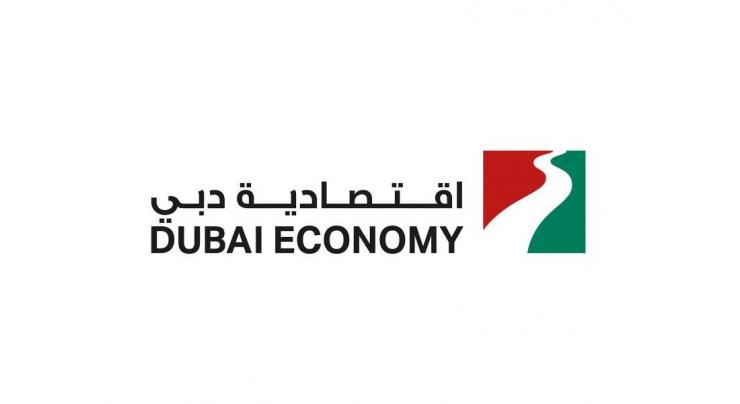
- Home
- Middle East
- UAE
- Expanding golden residency quantum leap towards economic growth, sustainable development, says Dubai ..
Expanding Golden Residency Quantum Leap Towards Economic Growth, Sustainable Development, Says Dubai Economy Analysis
Muhammad Irfan Published November 23, 2020 | 10:00 PM

DUBAI, (UrduPoint / Pakistan Point News / WAM - 23rd Nov, 2020) The UAE progressively extending golden residency to more and more categories will accelerate economic growth and productivity in Dubai in addition to enhancing the emirate’s attractiveness as a preferred place to live and work, an analysis done by Dubai Economy shows.
When all stages of granting golden residency to different groups are completed, economic growth rate in Dubai is likely to increase between 0.25 percent and 1 percent, driven largely by domestic demand and investment, according to the analysis done by the Corporate Strategic Affairs sector in Dubai Economy.
The golden residency will also open new markets and horizons in various sectors, including insurance, finance, real estate and university education. By encouraging the study of engineering sciences, technology, software, and medicine, in addition to providing an incentive for employees in Dubai and the UAE to develop their skills and increase their education levels golden residency will have a positive impact on productivity of individuals, particularly fresh graduates, and the economy overall.
His Highness Sheikh Mohammed bin Rashid Al Maktoum, Vice President and Prime Minister of the UAE and Ruler of Dubai, recently announced adopt major changes in golden residency by expanding the long-term (10-year) residency to include new categories starting from early December 2020, and emphasising the leadership’s vision of creating an attractive work environment that supports economic growth, diversity and sustainability.
The new categories include individuals with distinguished skills and experiences, including PhD holders, physicians, engineers in the fields of computer engineering, electronics, programming, electricity and biotechnology as well as graduates from UAE-accredited universities who scored Grade Point Average (GPA) of 3.8 and above. The golden visa will also be granted to holders of specialised degrees in artificial intelligence, big data, or epidemiology and virology in addition to the top graduates of UAE high schools along with their families.
More categories will be added in the future across various stages.
Mohammed Shael Al Saadi, CEO of the Corporate Strategic Affairs sector in Dubai Economy, remarked that the new amendments to golden residency signifies a strong impetus and a qualitative leap in supporting the process of sustainable development and economic growth in Dubai and the UAE in the short to long term, adding that creativity and talent of the people are the basis of the economic development process.
Al Saadi said: "The changes in the residency system reflect the UAE's interest in not only attracting creative and talented people, but also in ensuring they remain in the country through providing them with a stimulating environment and increasing family stability. This will have a positive impact on development, especially in promoting investment, including foreign investment."
According to studies, the consumption and investment behaviour of expatriates mainly depends on their expectations of the duration of their stay in the host country. If individuals and their dependents expect to stay for a long time, their spending will increase and cash transfers abroad will decrease, thus boosting local aggregate demand in Dubai and the UAE in general, and stimulating economic growth.
According to the 2019 annual report of the Dubai Health Authority, the number of resident doctors in Dubai reached about 9,120 by the end of last year while the number of resident dentists reached 2,365. Data by the Dubai Statistics Centre’s Labour Force Survey in 2019 indicated that the number of PhD holders in Dubai reached 10,366. Dubai is also home to over 63,000 engineers in the fields of technology, and over 16,000 electrical engineers.
Related Topics
Recent Stories

Tennis: ATP Barcelona Open results - 1st update

Swiatek's perfect 10 in Stuttgart as Vondrousova stuns Sabalenka

Arandu's roads closed due to flooding

Oil tanker catches fire in Islamabad’s Blue Area

Pakistan committed to ensure safety of foreign nationals: FO

Tennis: WTA Stuttgart results - 1st update

Four passengers injured as train hit an empty vehicle

Over- speeding bus crushed to death two bike riders

Turkey's Freedom Flotilla ready to set sail for Gaza

French teen dies from heart failure after knife attack near school

Iranians appear unfazed by Isfahan blasts

UAF celebrates Int'l Chinese Language Day
More Stories From Middle East
-

UAE announces ‘Zero Bureaucracy Program’ to reduce bureaucracy
3 months ago -

COP28 President-Designate welcomes Transitional Committee agreement to operationalise Loss and Damag ..
6 months ago -

Global Media Congress 2023 to feature Co-Production Majlis as a new networking platform
6 months ago -

Young female athletes shine at Abu Dhabi World Youth Jiu-Jitsu Championship
6 months ago -

King of Jordan receives Abdullah bin Zayed and ministers participating in Arab coordination meeting
6 months ago -

Abdullah bin Zayed participates in coordination meeting of Arab foreign ministers, joint meeting wit ..
6 months ago
-

3rd annual conference of Emirates Society of Clinical Microbiology kicks off in Dubai
6 months ago -

SIBF 2023 hosts Nobel laureate to discuss emergence of ‘Afrofuturism’ in global discourse
6 months ago -

ALC announces winners of Kanz Al Jeel Award 2023
6 months ago -

SIBF turns spotlight on remarkable contributions of women
6 months ago -

Global assets in spot bitcoin ETFs hit $4.16 billion
6 months ago -

Rescuers struggle to find Nepal quake survivors as deaths reach 157
6 months ago











